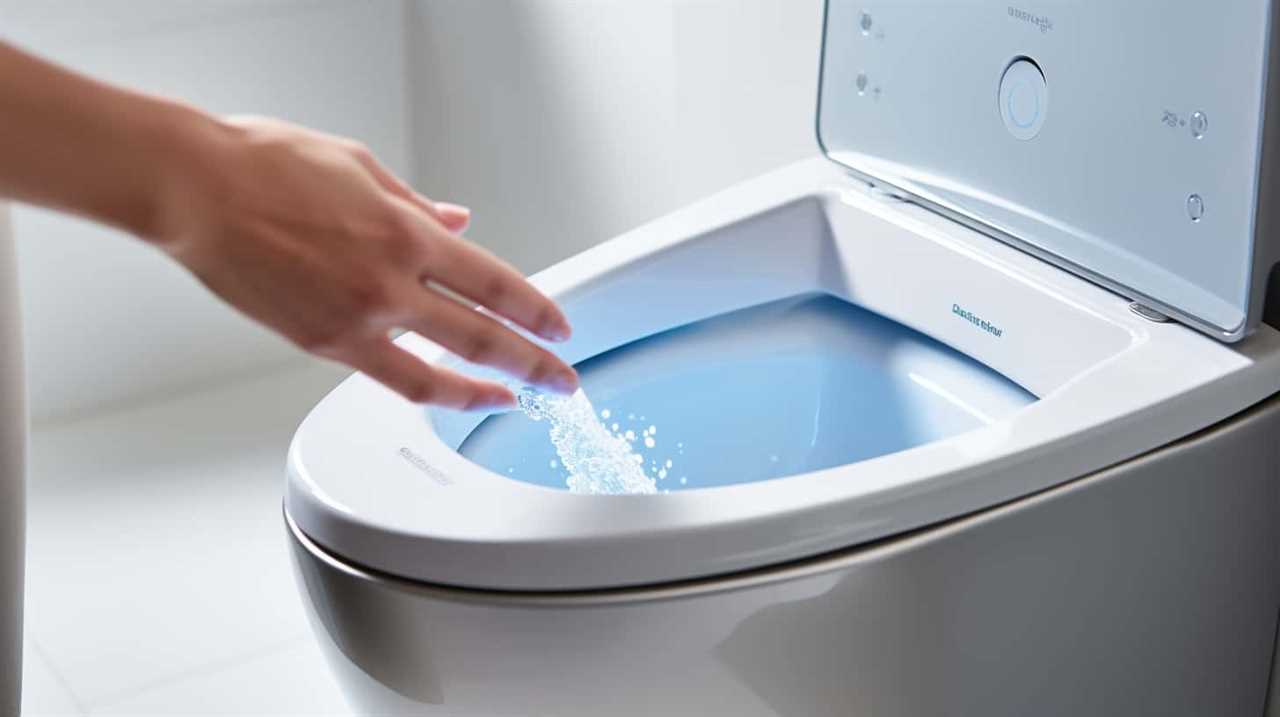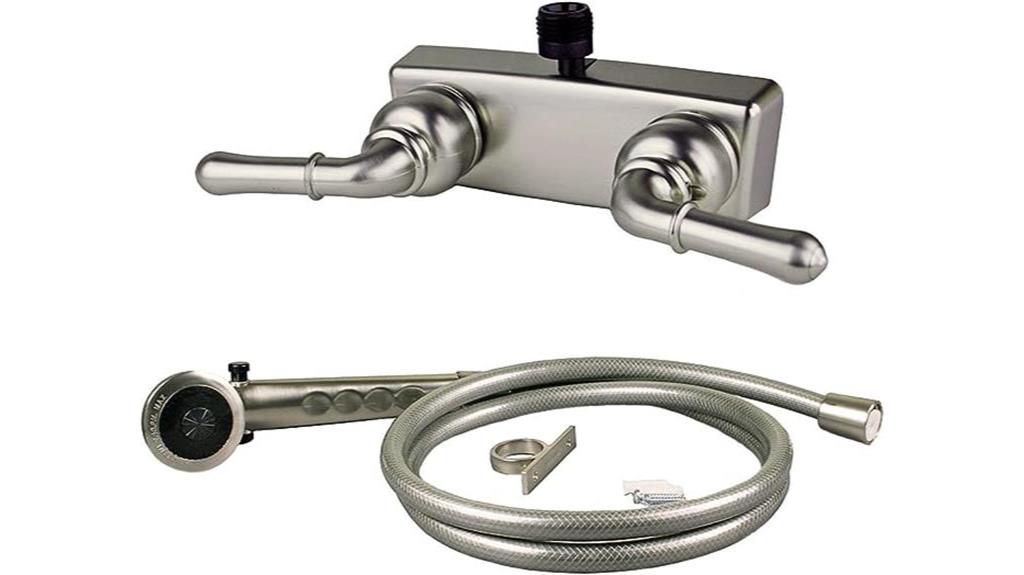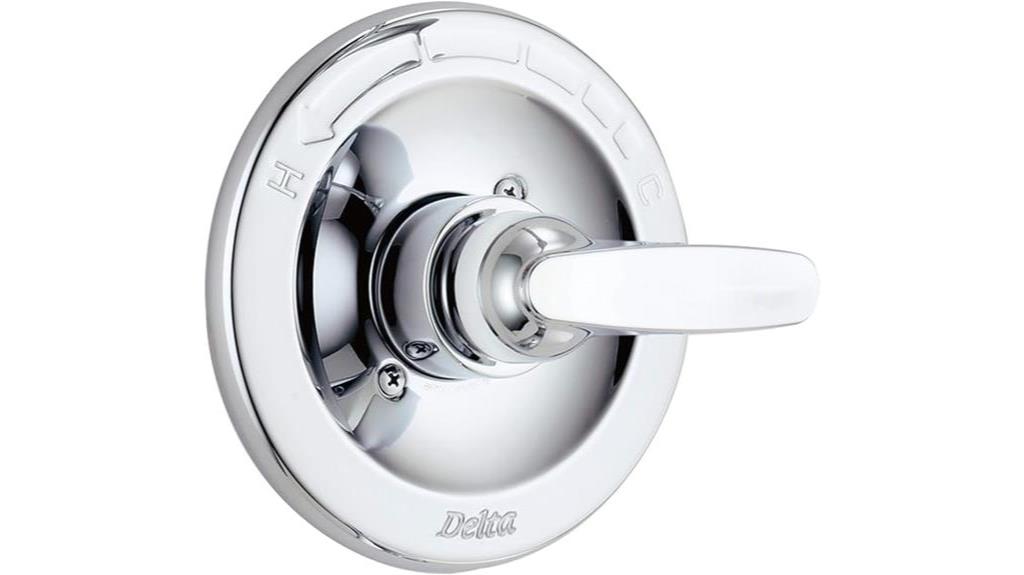Are you wondering if it’s harmful to flush wipes down the toilet? Well, let us tell you, it is indeed bad for your plumbing system, wastewater treatment facilities, and the environment.
Not only that, but it also poses health risks. In this article, we will provide evidence-based information on the potential damage, negative impact, and environmental consequences of flushing wipes.
We will also explore safer alternatives to help you make informed decisions.
Stay tuned for an enlightening read!

Key Takeaways
- Flushing wipes can lead to clogged pipes and backed-up toilets, causing costly repairs and unsanitary conditions.
- Flushed wipes can damage wastewater treatment facilities, interfere with the treatment process, and increase maintenance costs.
- Flushed wipes contribute to marine pollution, harm aquatic life, and disrupt ecosystems due to their non-biodegradable materials and chemicals.
- Flushing wipes poses health risks by spreading bacteria and viruses, and proper disposal in the trash is necessary to prevent these risks.
Potential Damage to Your Plumbing System
We’ve found that flushing wipes down the toilet can cause serious damage to our plumbing system. Not only can it lead to clogged pipes and backed-up toilets, but it can also result in costly repairs. When wipes are flushed, they don’t break down like toilet paper does. Instead, they can accumulate in the pipes, creating a blockage that prevents proper water flow. As a result, wastewater can back up into our homes, causing potential water damage and unsanitary conditions. The potential cost of repairing the plumbing system can be significant, especially if professional assistance is required. While some may attempt DIY solutions like using drain cleaners or plungers, these may not be effective in removing the wipe blockage entirely. Therefore, it’s crucial to avoid flushing wipes down the toilet to prevent potential damage and costly repairs to our plumbing system.
In addition to the potential damage to our plumbing system, flushing wipes down the toilet can also have a negative impact on wastewater treatment facilities.
Negative Impact on Wastewater Treatment Facilities
Flushing wipes down the toilet not only poses a risk to our plumbing system but also has a detrimental impact on wastewater treatment facilities. When wipes are flushed, they don’t break down easily like toilet paper, leading to clogs in the sewer pipes. This not only causes backups and overflows but also increases the maintenance and repair costs for the plumbing system.
However, the negative impact goes beyond the plumbing system. Wipes that make their way into wastewater treatment facilities can cause significant problems. Wastewater treatment plants are designed to treat human waste and biodegradable materials, not non-biodegradable items like wipes. These wipes can clog the equipment and interfere with the treatment process, leading to reduced effectiveness and increased costs.

Additionally, the presence of wipes in the wastewater can lead to contamination and can have negative effects on the environment. Therefore, it’s crucial to avoid flushing wipes to protect the integrity and efficiency of wastewater treatment facilities.
Environmental Consequences of Flushed Wipes
When wipes are flushed down the toilet, they not only pose a risk to our plumbing system but also have significant environmental consequences. The impact of flushed wipes on the environment is a growing concern due to their non-biodegradable nature. These wipes often contain synthetic materials such as polyester or polypropylene, which do not break down easily in water. As a result, they can accumulate in our waterways, contributing to marine pollution. The chemicals and microplastics present in these wipes can harm aquatic life and disrupt ecosystems. To illustrate the scale of the issue, consider the following table:
| Environmental Consequences of Flushed Wipes |
|---|
| – Marine pollution |
| – Biodegradability concerns |
| – Chemical contamination |
| – Ecosystem disruption |
| – Harm to aquatic life |
It is evident that flushing wipes down the toilet has far-reaching implications for our environment. To mitigate these consequences, it is crucial to properly dispose of wipes in designated trash bins and raise awareness about the environmental impact of flushing non-biodegradable materials.
Health Risks Associated With Flushed Wipes
Continuing from the previous subtopic, we should be aware of the health risks associated with flushing wipes down the toilet. While many wipes are marketed as ‘flushable,’ they can still pose significant risks to our health.
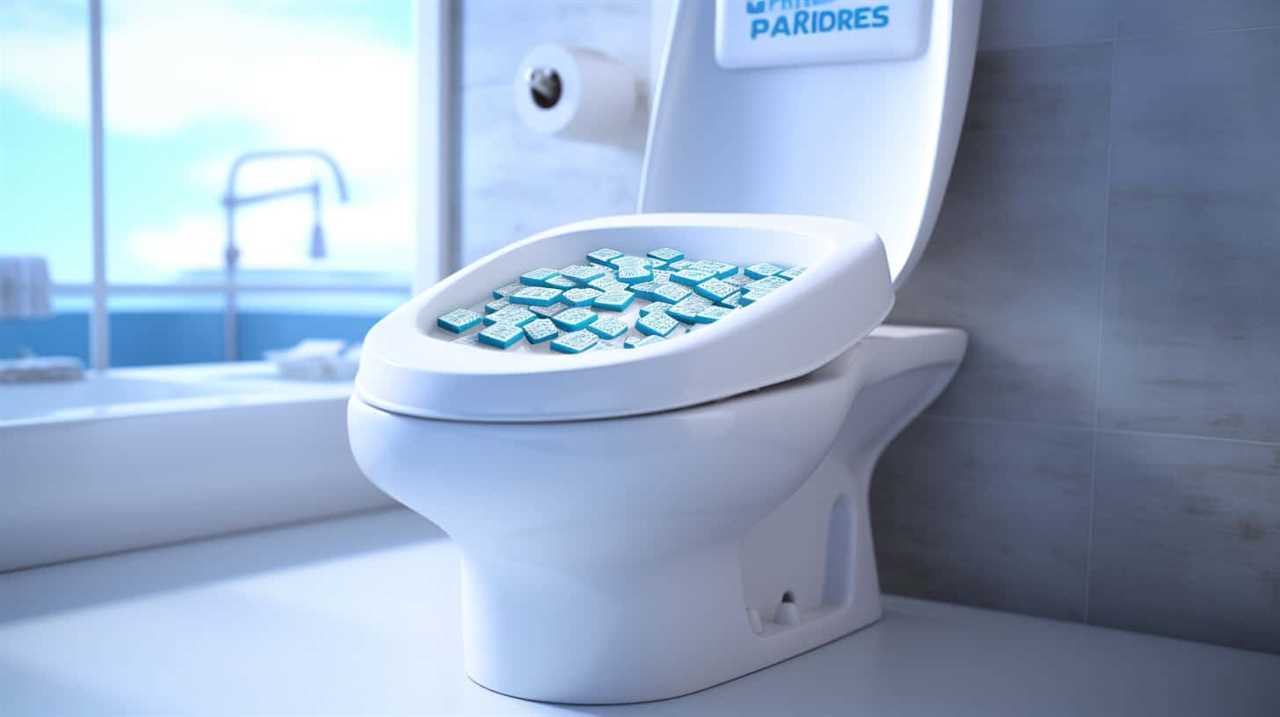
When flushed, wipes can clog pipes and sewage systems, leading to costly repairs and backups. Additionally, these wipes can accumulate in wastewater treatment plants, causing operational issues and increasing the risk of releasing untreated sewage into water bodies.
From a hygiene perspective, flushing wipes can also contribute to the spread of bacteria and viruses. Unlike toilet paper, which breaks down easily in water, wipes are designed to be durable and can remain intact even after flushing. This means that harmful pathogens can survive and potentially contaminate water sources.
To ensure proper toilet hygiene and prevent health risks, it’s essential to dispose of wipes in the trash rather than flushing them. This simple practice can protect our health, maintain proper functioning of sewage systems, and safeguard the environment.
Alternatives to Flushing Wipes Down the Toilet
To avoid the negative consequences of flushing wipes down the toilet, we can consider using alternative disposal methods. One option is to switch to flushable wipes that are specifically designed to break down in water. These wipes have undergone testing to ensure that they disintegrate quickly and won’t cause clogs in the plumbing system. However, it’s important to note that even ‘flushable’ wipes can still cause issues in older or sensitive plumbing systems, so it’s best to use them sparingly.
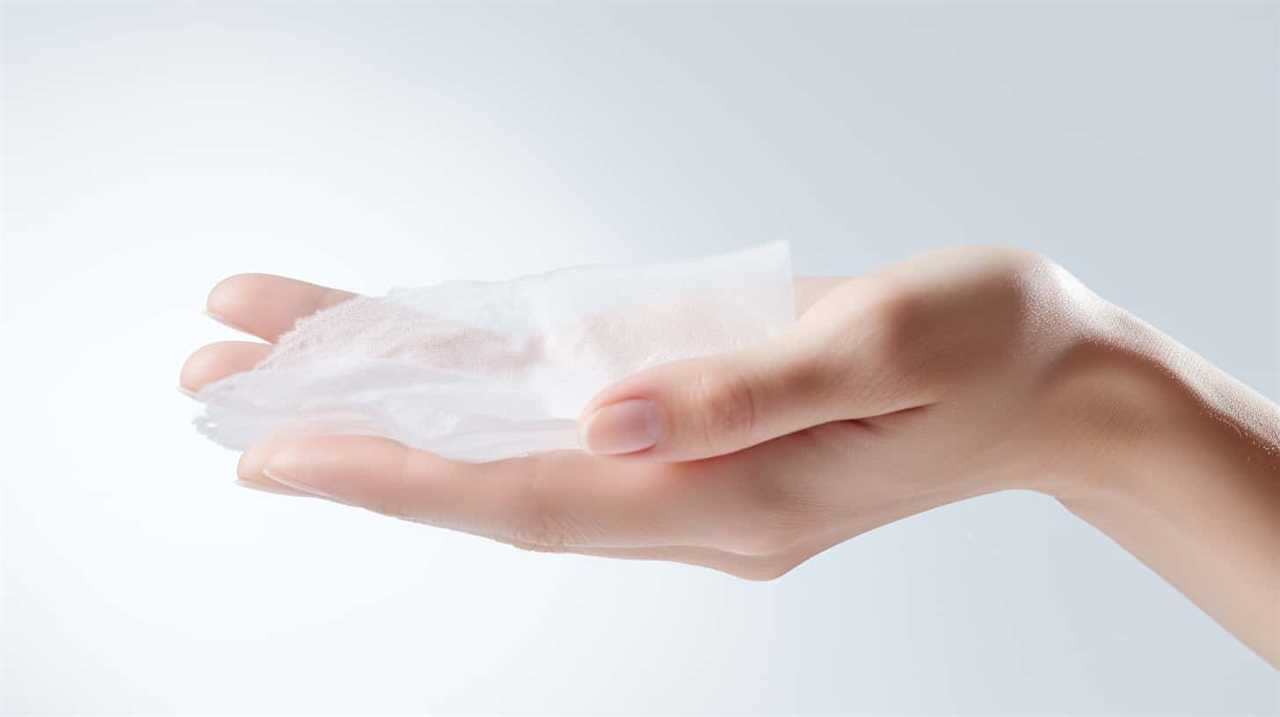
Another alternative is to use compostable wipes. These wipes are made from natural materials that can be broken down in composting facilities, reducing the environmental impact. Compostable wipes are typically made from renewable resources like bamboo or cotton, and they’re free from harmful chemicals. They provide a more sustainable option for personal hygiene while minimizing waste.
Conclusion
In conclusion, flushing wipes down the toilet can cause significant damage to your plumbing system, wastewater treatment facilities, and the environment. It also poses health risks due to clogs and blockages.
One interesting statistic to consider is that in the United States alone, flushing wipes costs billions of dollars annually in plumbing repairs and maintenance. This highlights the magnitude of the problem and emphasizes the need for proper disposal methods to protect our infrastructure and the environment.

